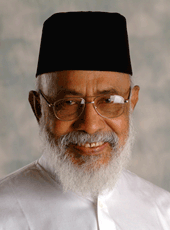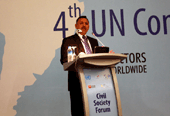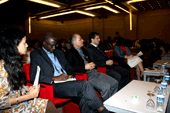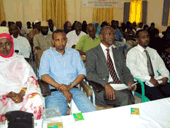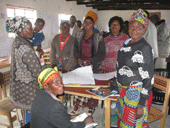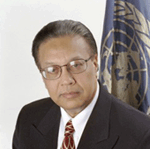Social Watch news
|
Published on Fri, 2011-05-13 07:59
Source: The Civic Coalition for Free and Fair Elections and European Exchange gGmbH (Germany) launched last week the project “Domestic Election Monitoring and Voter Education in Moldova – Strengthening of Capacities and International Networking”. |
|
Published on Fri, 2011-05-13 07:53
Sources The partners of the European-wide campaign “fair flowers – for human rights” demand the respect of internationally acknowledged labour rights for flower workers worldwide, most of them women. One of the participants of the campaign is the Ecumenical Academy Prague (Ekumenicka Akademie Praha), focal point of Social Watch in Czech Republic. |
Published on Thu, 2011-05-12 07:16
Source: The Star The Consumers Association of Penang (CAP, a national focal point of Social Watch) revealed that Malaysian households are spending about half of their income to pay off their debts, reported journalist Josephine Jalleh in a report published by The Star daily journal. |
Published on Wed, 2011-05-11 07:42
Source: LDC Watch The fact “that poor and marginalised people in LDCs have gained little from the past decade” is a “bitter reality” that made the civil society work on its “own programmes for action beyond” the United Nations Fourth Conference on Least Developed Contries (UNLDC-IV), said Arjun Karki, international coordinator of LDC Watch. |
Published on Wed, 2011-05-11 07:37
Source: Civil Society Forum Civil society leaders urged governments to an “urgent and radical shift from the current development paradigm to genuine pro-people development,” and overcome their disagreements to finalise the United Nations Fourth Conference on Least Developed Contries (UNLDC-IV) with a a Programme of Action that can have a real impact on the lives of people. |
Published on Tue, 2011-05-10 11:51
Sources: SOCDA and allAfrica.com Fifty “repentant pirates” were trained in building, carpentry and other working skills in the northeastern Somali region of Puntland, one of the more stables of this troubled country, which administration is being supported by the organisation Norwegian Church AID (NCA). The former criminals spent three months in those courses, implemented by the NCA and the local Ministry of Health. |
Published on Tue, 2011-05-10 11:46
Source: Better Aid “It is a tragedy that even in the 21st century there are still countries and populations categorized as poor, excluded, vulnerable, east developed, developing and developed,” said the international alliance of civil society organisatiosn Better Aid, in a statement previous to the United Nations Fourth LDCs Conference (UN LDC-IV) that takes place in Istanbul this week. |
Published on Tue, 2011-05-10 07:25
The “least developed countries” (LCDs) of the Arab region “witness the same people’s mobilizations calling for democratic reforms” than the rest, warned the Arab NGO Network for Development (ANND), in a statement launched to raise its concerns to the United Nations Fourth LDCs Conference (UN LDC-IV) that takes place in Istanbul this week. |
Published on Fri, 2011-05-06 18:03
Sources: “Major Salvaging Needed for LDC IV in Istanbul”, by Anwarul k. Chowdhury: http://bit.ly/iUGLfA More than forty heads of government and high officers representing 48 countries with a population of 880 million people. A week of discussion. One official meeting and three parallel forums arranged for civil society, the business sector and the parlamentarians. But the week-long fourth Conference on the Least Developed Countries (UNLDC IV) that will begin this Monday in Istanbul “does not promising at all”, according to Bangladeshi ambassador Anwarul K. Chowdhury, former UN Under-Secretary-General. |
SUSCRIBE TO OUR NEWSLETTER

